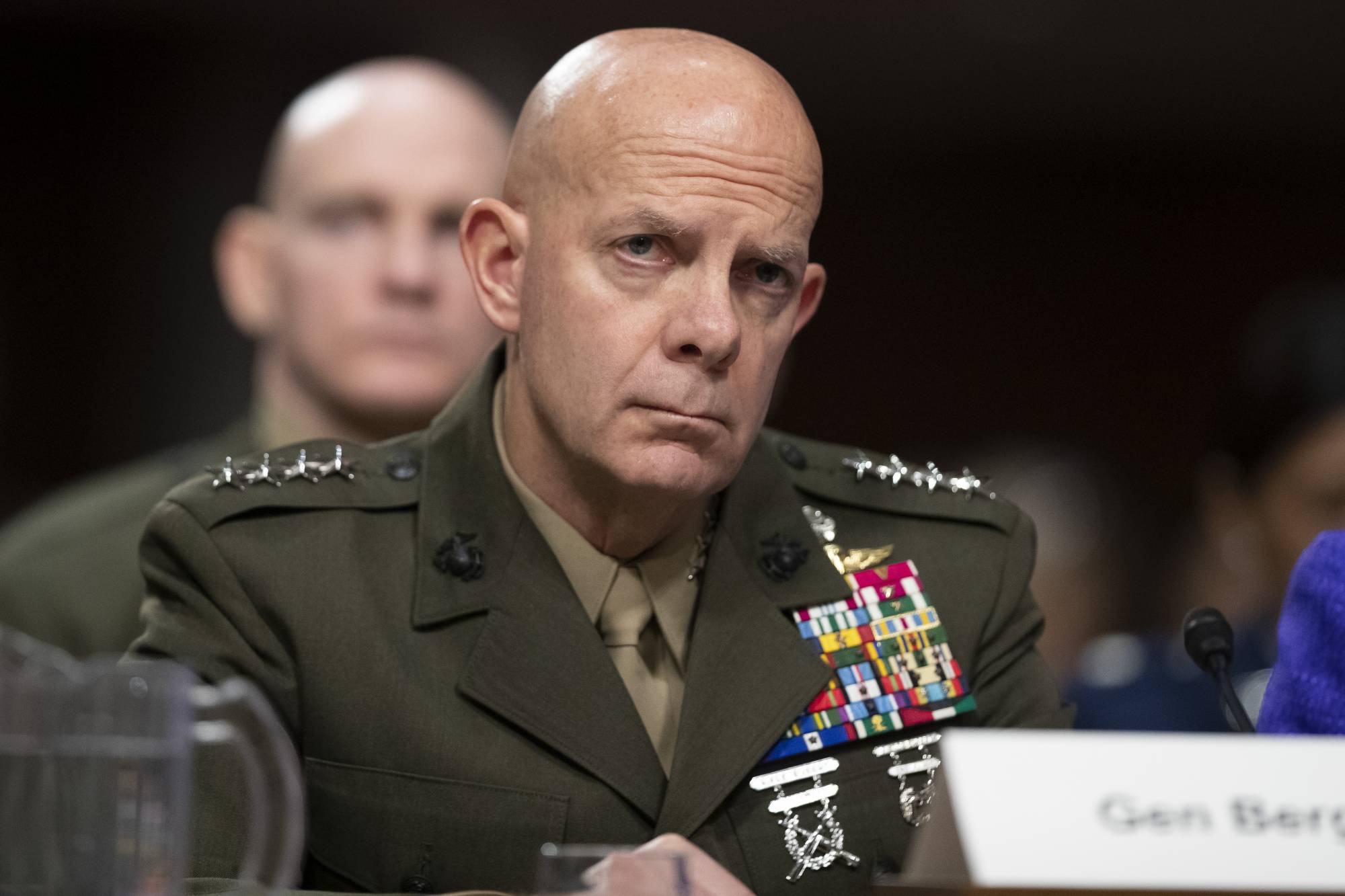
Three Army service members charged in alleged gun running scheme
In today's Federal Newscast, the Justice Department has charged three Army servicemembers for allegedly having a key role in a criminal network that supplied gu...
To listen to the Federal Newscast on your phone or mobile device, subscribe in PodcastOne or Apple Podcasts. The best listening experience on desktop can be found using Chrome, Firefox or Safari.
- The Justice Department has charged three Army service members for allegedly having a key role in a criminal network that supplied guns to gang members in Chicago. The Justice Department said the soldiers, based at Fort Campbell, Kentucky, acted as “straw purchasers,” buying nearly 100 guns that are legal under Kentucky law, and then selling them to the Gangster Disciples. The soldiers and nine other people were indicted for conspiracy to violate federal firearms laws. (Federal News Network)
- The commission in charge of renaming military properties honoring Confederate officers has a long list to get through. There are at least 758 different streets, buildings, bases and other properties the Naming Commission will rethink over the next six months. The commission was created by Congress to readdress military properties that bear the name of Confederates. The commission has narrowed down a list of about 100 names to use as replacements. They include Dwight Eisenhower, Harriet Tubman and Omar Bradley. The Defense Department has another two years to make name changes. (Federal News Network)
- The Marine Corps’ standards for body composition are leading to unhealthy results. A study by the RAND Corporation said the service’s body composition program does not allow for Marines to maintain their increased muscle mass to do their jobs. Marines are being diagnosed with eating disorders at a higher rate than other branches of the military. Those disorders are highest among women.
- Small businesses in the SBA’s 8(a) program are doing better at the Defense Department. From 2016 to 2021, 8(a) firms saw the number of sole source awards grow to 65 from six. Those 65 awards were worth $3.4 billion. A new report by the Government Accountability Office also found the number of 8(a) contracts competed increased every year from 2016 to 2020. GAO said in 2021 the number of competitive 8(a) awards fell to 100, which was about the same number in 2016.
- Federal contractors have new expectations for how they report that they’re meeting equal employment opportunity laws. A new directive from the Labor Department’s Office of Federal Contract Compliance Programs aims to strengthen contractor compliance and reduce delays in enforcement decisions. Under the directive, contractors have to more quickly produce information about their affirmative action programs and support data. That’s the information OFCCP uses for contractor evaluations. The directive also tells vendors to use the contractor portal to certify compliance with EEO laws.
- The largest federal employee union stresses the need for strong health and safety measures as more agencies plan a return to the office. With the vast majority of federal employees returning to the office later this month, the American Federation of Government Employees said it’s fighting to keep workplace flexibilities and telework as part of office re-entry negations. AFGE National President Everett Kelley said more than 600 members have died from COVID-19 since the start of the pandemic. “They can take all the safety precautions, but then they still walk into situations where many times their coworkers are not safe. And so it brings on a lot of stress.” (Federal News Network)
- Postmaster General Louis DeJoy said the Justice Department is closing its investigation into political fundraising at his former business without filing criminal charges. A DeJoy spokesperson confirmed a DoJ investigation was underway last June. The investigation looked into campaign contributions made by employees at his former company New Breed Logistics. Former employees claimed they were pressured to attend political fundraisers and make campaign contributions that were allegedly paid back through bonuses. (Federal News Network)
- Lawmakers are trying once again to mandate better cybersecurity at the Veterans Affairs Department. The Strengthening VA Cybersecurity Act would require the Veteran Affairs Department to bring in third-party experts to help fix long-standing problems. A bi-partisan group of House and Senate lawmakers introduced companion bills last week that would require VA to bring in a federally funded research and development center (FFRDC) to provide an independent analysis of the agency’s cyber challenges. The review also will look for “shadow IT,” which is devices and applications outside of the control of the CIO’s office. After the review, VA will submit a plan to Congress for how to fix the problems detailed by the FFRDC.
- Congressional auditors say those annual Federal Information Security Modernization Act ratings might not be applied evenly across agencies. Every year, inspectors general evaluate agencies on whether their cybersecurity programs meet FISMA standards. But the Government Accountability Office said the White House is not providing clear evaluation guidance to the IGs, leading to inconsistent evaluations and imprecise ratings. GAO said the Office of Management and Budget should clarify its FISMA guidance for IGs and improve the ratings scale.
- The White House is scrutinizing agency efforts to secure critical infrastructure from cyber threats. White House National Cyber Director Chris Inglis is reviewing the performance of sector risk management agencies that oversee 16 critical infrastructure sectors. The Biden administration has warned Russia may be targeting U.S. critical infrastructure with digital attacks. And Inglis said there are probably some areas where agencies can do a better job of ensuring critical infrastructure companies are secure. “I think we’ll discover that they have uneven performance. Some of them are operational, some of them are not.” (Federal News Network)
- Stock funds for the Thrift Savings Plan are mixed for the month of March. The lifecycle funds, along with the G, C and S funds are performing better than in February. The C fund is up by 3.72%, after being down 2.99% in February. The C fund is still down compared to the fund’s performance from this time last year. The lifecycle funds are all up for last month, but are down year over year. The F and I funds were also down in March.
Copyright © 2024 Federal News Network. All rights reserved. This website is not intended for users located within the European Economic Area.
Eric White
Eric White is news anchor and Federal Drive producer at Federal News Network.
Follow @FEDERALNEWSCAST
Related Stories

Labor Dept.’s OFCCP to visit hundreds of contractors in the coming months
Related Topics




